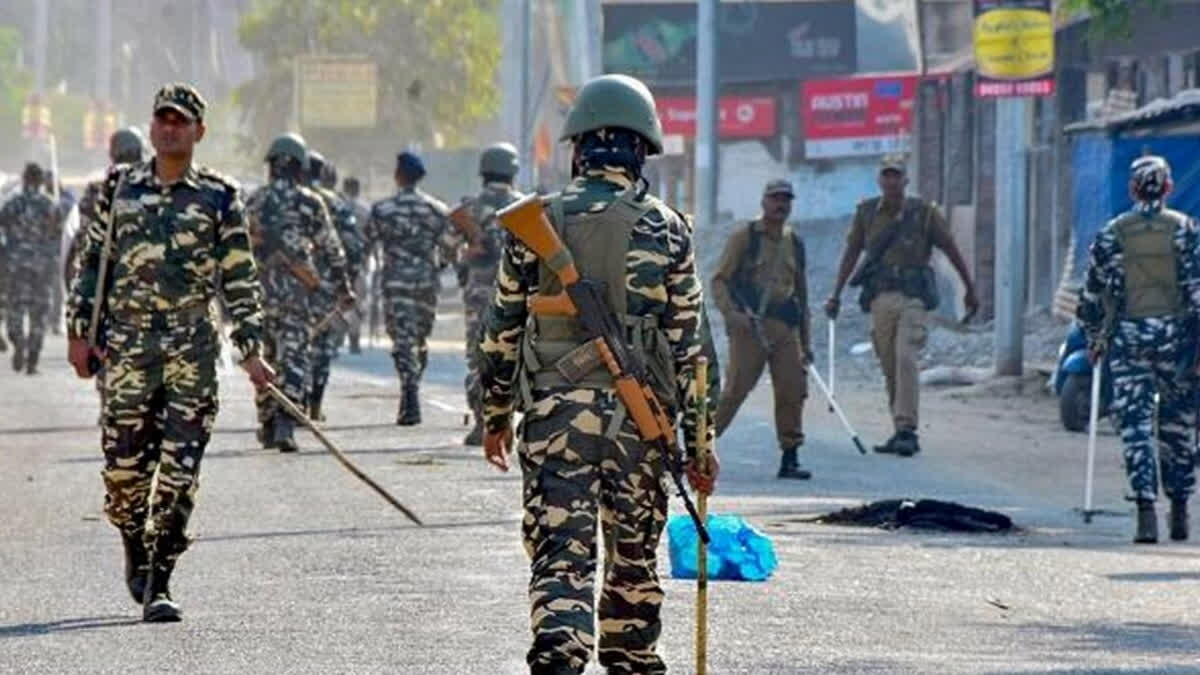New Delhi: As thousands of Meiteis and Kukis are in relief camps in violence-torn Manipur, a group of doctors that visited the state has expressed concerns about the the issue of nutrition and mental health situation of the inmates. A team of doctors from Indian Doctors For Peace and Development visited a relief camp each in the Meitei and Kuki areas.
The team included Dr Arun Mitra, Dr Shakeel, Dr Ravindranath and Dr Rajani, who were in Manipur from September 1 to 3. They visited a relief camp in the Khumanlankpak sports hostel in Imphal and the IIT relief camp in Kangpokpi district in the hill area. There are 334 such relief camps in Manipur currently. The doctors met the inmates at these relief camps as well as the nodal officers of the district administration.
They said the displaced people in the hill areas have been cut off from Imphal amid the ethnic strife and that access to healthcare in such areas is difficult. "Those in the hills have to travel all the way to Kohima or Dimapur, which is 150 km away in Nagaland, or to Guwahati in Assam, around 450 km away, as Kukis and Meiteis are not entering each other's areas, and advanced medical facilities are available only in Imphal," Mitra said on Monday.
The Kangpokpi district hospital has neither an operation theatre nor a blood storage facility, according to a report prepared by the team. Manipur is also facing an acute shortage of specialists, other doctors and health workers. Most of the specialists and doctors and all the medical college hospitals of the northeastern state are located in Imphal district and Churachandpur, which is violence hit.
Shakeel said the food supplied to the camps is limited to dal, rice and potatoes, and no green or leafy vegetables are being provided. The report quoted inmates and a nodal officer of a relief camp in the Imphal valley, who said green or leafy vegetables, eggs, meat and fish have never been supplied in the ration, though local communities did arrange some vegetables. Another nodal officer in a relief camp in the hills said they get one egg every two weeks, but green vegetables are not supplied.
The doctors recommended that oral supplements for vitamin A be provided to the inmates of these camps and urged the government to conduct vaccination drives, including against measles. They said the camps are overcrowded, the availability of water is low and while sanitary napkins are available, the supply is not sufficient. The doctors said above all, the stress and mental trauma being faced by the inmates is the biggest challenge, especially since psychological counselling is not available at the camps.
Problems are also being faced by the patients of chronic diseases, such as diabetes and high blood pressure, especially in the hill areas. The doctors also came across a couple of patients who required hemodialysis, which is unavailable in the hill areas. They urged the state government to focus on the health situation of the inmates as also to ensure their proper nutrition. They also urged the government to arrange for psychological counselling in the camps.(PTI)



